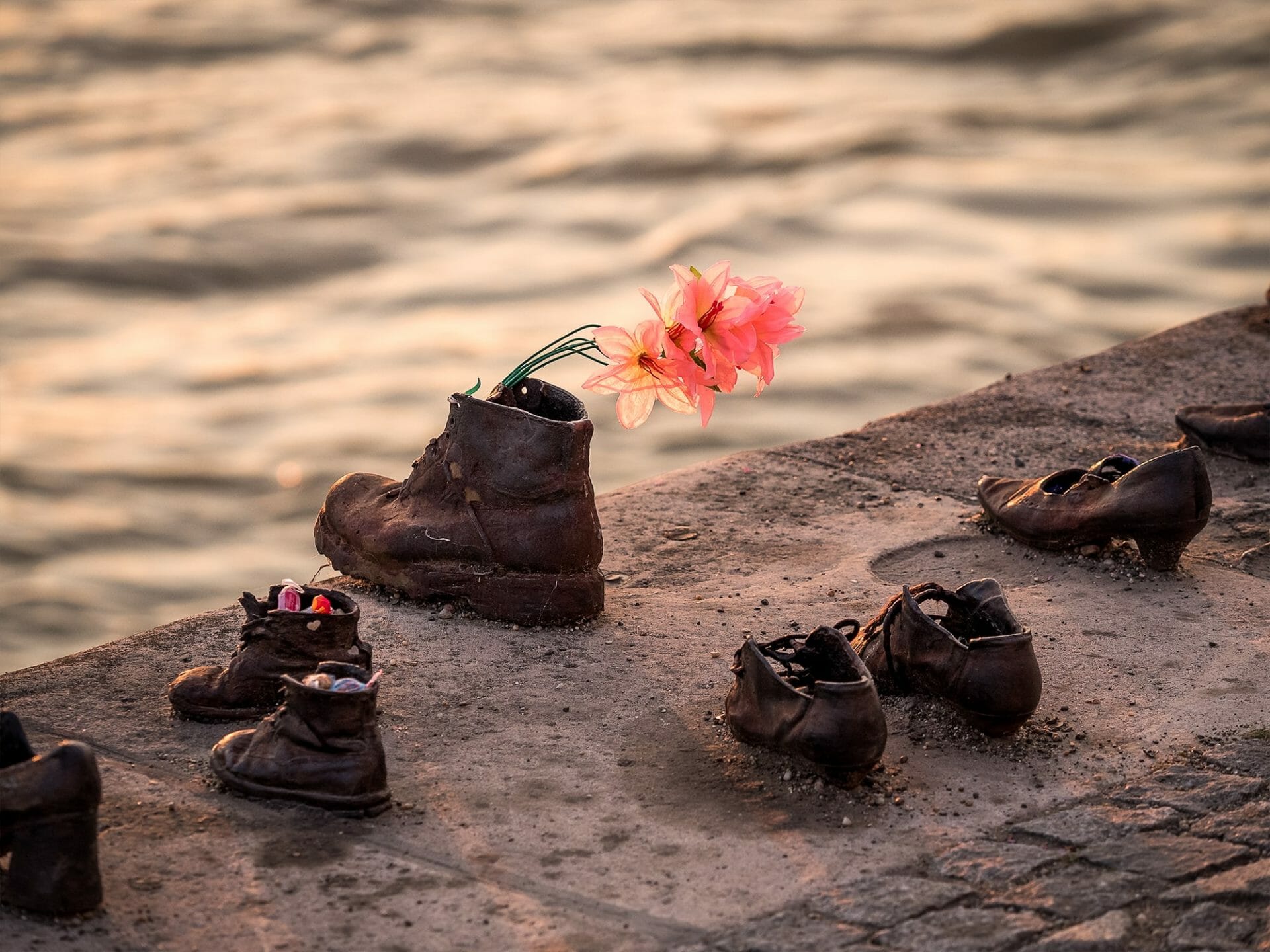Holocaust Remembrance Day—A reminder of what was lost, and that contemporary attempts at renewing anti-Semitic ideology cannot be tolerated
Rev. Bryan Jackson
April 8, 2021
“Our many Jewish friends and acquaintances are being taken away in droves. The Gestapo is treating them very roughly and transporting them in cattle cars to Westerbork, the big camp in Drenthe to which they are sending all the Jews.” (from Anne Frank’s diary, October 9, 1942)
While most U.S. adults know what the Holocaust was and approximately when it happened, fewer than half know the number of Jews who were murdered or the way Adolf Hitler came to power, according to a 2020 Pew Research Center survey.
Our Judeo-Christian imperative regarding the past is sacrosanct, and we must do what we can to perpetuate the remembrance of one of the most important and tragic events in history, so as not to repeat it. Somewhere along the line, particularly with the proliferation of social media and the reliance upon it by a bewildering number of individuals for their primary source of news and information, society has lost much of its ability to critically discern facts.
When one peruses the writings of Anne Frank, it is peculiar, to say the least, that one could dismiss such a significant part of the totality of what was happening across Europe during World War II. This young woman’s reflections are renowned, and for good reason. If one writes about a far-reaching crisis of one’s time and that writing becomes published, it is instantly open to the strangest of interpretations. An example would be the denial of sensibility so popular in the United States regarding the current pandemic. Direct evidence, which includes eyewitness testimony, can, in the most staggering ways, fail to convince people that pain, suffering, and death are genuine, and a crack forms in the cement of society that, if gone unchecked by reality (what “is,” not what one wishes or pretends it to be), widens and becomes a horrible and dangerous chasm.
“The Diary of a Young Girl,” also known as “The Diary of Anne Frank,” offers an honest perspective of what life was like for some of the Jews during the Holocaust years. A Montessori-educated child, Anne expressed her individuality and free thinking consistently throughout her writings. This made for a powerful combination of childhood simplicity paired with the agonizing cruelty of what was happening around her. Anne seemed to have found it relatively easy to call things as she saw them. Despite the millions of persons who have read her diary throughout the remainder of the twentieth century and into the twenty-first, doubts still exist about the genocide of the Jews across Europe, ushered in during the reign of Adolf Hitler.
Genocide is the biomarker that humankind has a long, long way to go on the evolutionary spectrum. Holocaust Remembrance Day should always serve as a reminder of what was lost, and that sadistic, contemporary attempts at renewing anti-Semitic ideology cannot and will not be tolerated.
The University of Southern California’s Shoah Foundation created a project called Dimensions in Testimony. The project “enables people to ask questions that prompt real-time responses from pre-recorded video interviews with Holocaust survivors and other witnesses to genocide.” It has been an opportunity for people to get a clear, realistic interpretation of what life was like for Jews during this period in history. The project was featured on the CBS series, “60 Minutes” in 2020. Providing people (especially young people) the opportunity to hear from some of those who survived is a testament to technology and those innovative enough to bring this project to fruition. Whether through the use of amazing artificial intelligence or simply by reading the historical account of those who lived and witnessed it, the Holocaust is unquestionably a subject that warrants study and revisiting.
The Christian tradition is steeped in the persecution of Jewish people and it continues to be a source of amazement to occasionally encounter Christians who seem to conveniently forget that Jesus was a Galilean Jew. When Christ’s Jewishness becomes problematic for some, it in turn becomes a problem for many. January’s attack on the U.S. Capitol revived the ugliness all over again when some Americans were seen wearing anti-Semitic clothes and/or tattoos. The shooting at the Tree of Life synagogue in Pittsburgh, PA in 2018 was a reminder of the disturbing truth that the persecution continues with lethal consequences. When the Psalmist cried, “My God, my God, why have you forsaken me?” (Psalm 22:1) one can’t help but imagine the pain, both physical and temporal, that has been felt down through the centuries.
When Jesus cried these same words from the cross, he took on the agony of all—past, present, and future. One would have hoped that the collective response in these modern times would be one of compassion and a deeper, more vibrant understanding and love. Genocide is the biomarker that humankind has a long, long way to go on the evolutionary spectrum. Holocaust Remembrance Day should always serve as a reminder of what was lost, and that sadistic, contemporary attempts at renewing anti-Semitic ideology cannot and will not be tolerated.
Clearly, there is work to be done.
The Rev. Bryan D. Jackson is an American Baptist minister and a member of the Mount Hood Cherokees, a satellite community of the Cherokee Nation. He lives on Vashon Island, Washington and is the author of Chattahoochee Rain: A Cherokee novella.
The views expressed are those of the author and not necessarily those of American Baptist Home Mission Societies.



